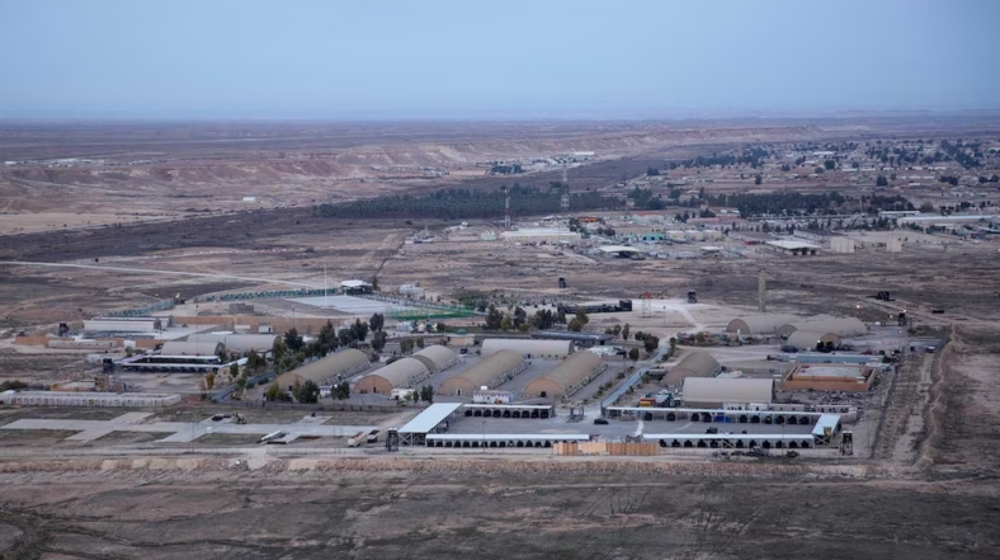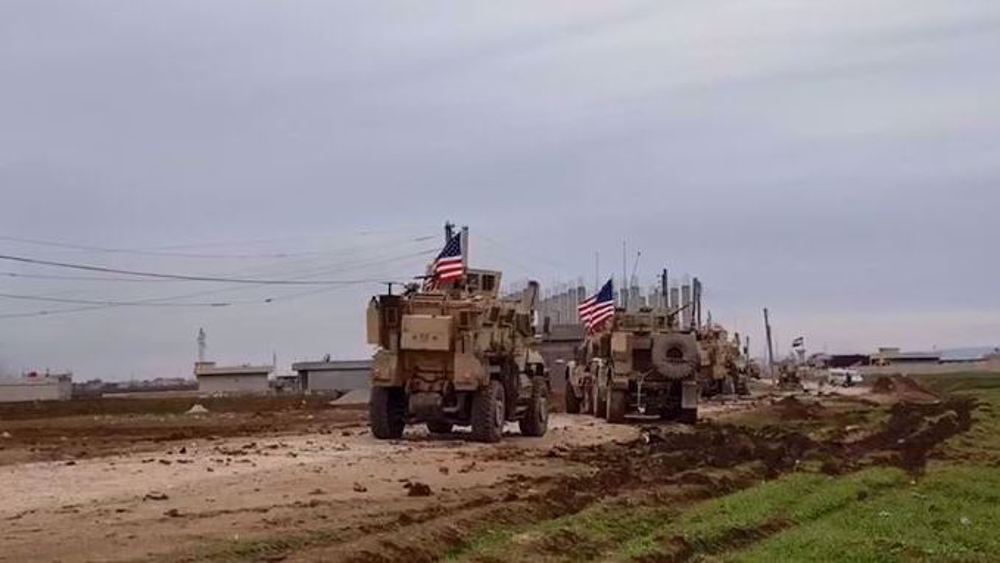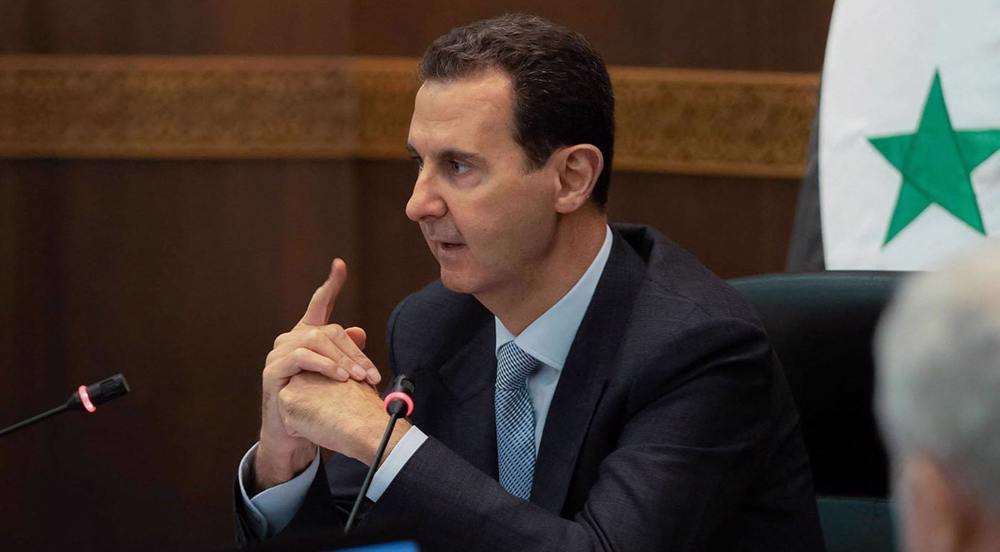Russia, France, Germany leaders urge 'information exchange' on Syria
The Russian, French and German leaders have agreed to speed up their "exchange of information" on Syria, the Kremlin says.
In a statement on Sunday, the Kremlin added that Russian President Vladimir Putin discussed the Syrian crisis with French and German leaders, Emmanuel Macron and Angela Merkel, respectively.
During phone talks, the three leaders discussed the implementation of a United Nations Security Council resolution on a month-long ceasefire in the war-torn country, it noted.
According to the statement, Putin, Macron and Merkel stressed "the importance of continuing common efforts in the interests of the full implementation of the resolution as soon as possible."
The UN Security Council on Saturday unanimously voted in favor of a resolution demanding a 30-day truce in Syria 'without delay' to allow aid access and medical evacuations.
The resolution was adopted by 15 votes to none, after several delays and a flurry of last-minute negotiations.
The Kremlin said the German, Russian and French leaders "had expressed satisfaction" that the Security Council had managed to agree on the resolution following "common constructive work."
Putin informed Macron and Merkel of steps Russia is taking to evacuate civilians and deliver humanitarian aid to those in need, it added.
"Special attention has been paid to the fact that a ceasefire does not cover operations against terrorist groups," the statement said.
Eastern Ghouta near Damascus has witnessed renewed violence in the past few days, where terrorists have mounted repeated mortar attacks on the Syrian capital in the face of an imminent rout. Western powers, however, blame the Syrian government and Russia for the crisis.
Read more:
- Eastern Ghouta militants kill civilian in mortar attack on Damascus: TV
- Russia's concerns on UNSC Syria resolution 'realistic'
- Syrian army forces, allies foil Fateh al-Sham attack on military posts in Quneitra
The Syrian army launched a ground operation on Sunday against the al-Nusra Front and other terrorist groups in the Eastern Ghouta region, wresting control over some areas.
The truce does not apply to operations against the Daesh, al-Qaeda and al-Nusra Front along with "individuals, groups, undertakings and entities" associated with the terrorist groups.
It also allows the Syrian government's operation to continue against terrorists in Idlib Province, the country’s largest remaining militant stronghold.
Iran's Arabic-language Al-Alam news channel reported the recapture of the Nashabeya and Hazrma areas as well as Farzat Hill by the Syrian military.
Merkel's office also said in a statement on Sunday that the German chancellor and French and Russian presidents stressed "that it is crucial that the [Security Council] resolution be implemented quickly and comprehensively."
Russian Foreign Minister Sergei Lavrov said on Thursday the Ghouta-based militants had rejected Russia's offer to “evacuate peacefully” and that they were using civilians there as “human shields.”
He added that Russia was ready to consider a UN Security Council draft resolution demanding a 30-day truce in Syria as long as it did not include the two Takfiri groups and other militants “who are shelling residential quarters of Damascus.”
Eastern Ghouta is included in a deal between Turkey, Russia and Iran to establish de-escalation zones in Syria with the aim of reducing violence in the war-torn Arab country.
Russia has been lending aerial support to Syria’s counter-terrorism operations since September 2015.
Meanwhile, the US and its allies have been bombarding what they call Daesh positions inside Syria since September 2014 without any authorization from the Damascus government or a UN mandate.
The strikes, however, have on many occasions resulted in civilian casualties and failed to fulfill their declared aim of countering terrorism.
Read more:
VIDEO | UK govt. Rwanda bill denounced as 'state-sponsored people trafficking'
VIDEO | Iran president visits Lahore, Pakistan’s cultural hub
North Korea: US military drills drive regional security into turmoil
UN agency chief for Palestinians urges probe into staff killings
200 days of Israeli war on Gaza and 200 headlines whitewashing genocide
VIDEO | 200 days of US-Israeli genocide
Iran’s security chief in Russia to underline Israel’s aggression
VIDEO | Smoke rises from Gaza as fighting continues













 This makes it easy to access the Press TV website
This makes it easy to access the Press TV website